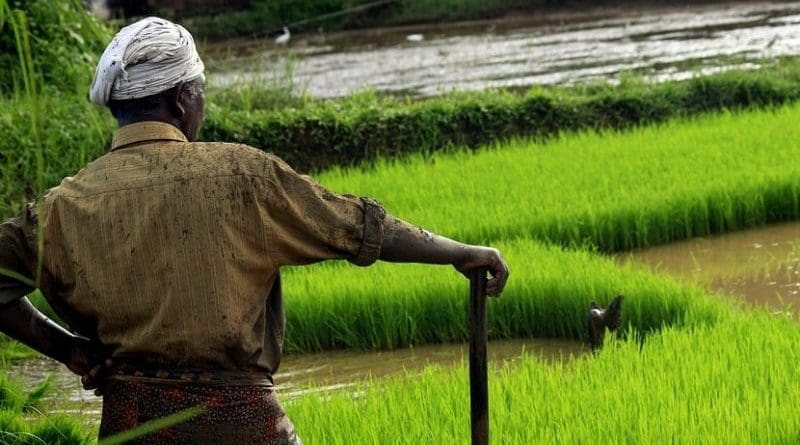Organic Agriculture Key To Combat Land Degradation – Analysis
By IDN
By Devinder Kumar
In 2018, the first 100% organic state in the world, Sikkim in the North of India, received the Gold Award of the UN backed Future Policy Award, also known as ‘Oscar’ for best policies. The policy enhances soil fertility and increases biodiversity at field and landscape level. Further states in India and the Himalayas have adopted 100% organic farming goals or aim to adopt them.
A side event on September 6 during the 14th Conference of Parties (COP14) of the United Nations Convention to Combat Desertification (UNCCD) – UNCCD COP14 –in New Delhi highlighted innovative policies from India and the Himalayas, which help achieve the land degradation neutrality target and improve the living conditions of people affected by desertification, land degradation and drought.
The session also launched the study “The Mainstreaming of Organic Agriculture and Agroecology in the Himalaya Region. Policy Contexts in Bhutan, India and Nepal”.
“The transition to sustainable food and agriculture systems is critical for a sustainable future. Both Sikkim and Bhutan show with their 100% organic goals that such a transition is possible. UNCCD is proud to showcase, along with the World Future Council and IFOAM – Organics International, their leadership and political will towards achieving land degradation neutrality. We can learn many lessons from their exemplary actions on policy making,” said UNCCD Executive Secretary Ibrahim Thiaw.
“By scaling up organic agriculture and agroecology, it is possible to tackle malnutrition, social injustice, climate change, and loss of biodiversity. Through effective, holistic policymaking, we can transform our food systems so that they respect people and the planet,” said Alexandra Wandel, Executive Director of the World Future Council.
Sikkim proves that it is feasible – and how. Sikkim, Bhutan and other Himalayan states are part of a growing movement pursuing organic farming and agroecology as an effective pathway for achieving the Sustainable Development Goals (SDGs) and delivery on the entire 2030 Agenda, Wandel said. “They show that achieving land degradation neutrality is no longer a pipe dream but can become reality,” she added.
Louise Luttikholt, Executive Director, IFOAM – Organics International said: “The Indian state of Sikkim was chosen for the Future Policy Gold Award 2018, because it is the first state in the world to become fully organic. It set an ambitious vision and achieved it, reaching far beyond organic farming production and proving to be truly transformational for the state and its citizens. Sikkim sets an excellent example of how other Indian states and countries worldwide can successfully upscale agroecology.”
The importance of combating desertification and its consequences is underlined by the fact that families and communities are breaking up, losing their homes and sources of livelihoods, often from single instances of droughts, flashfloods and forest fires.
These negative impacts of unpredictable and extreme climatic conditions are now recurrent, more frequent and intense in many parts of the world. Today, over a million species are on the verge of extinction, threatening global food security, largely due to habitat loss and land degradation.
Three out of every 4 hectares of land have been altered from their natural states and the productivity of about 1 in every 4 hectares of land is declining. Poor land health is on the rise, and is impacting 3.2 billion people all over the world. Land degradation working in tandem with climate change and biodiversity loss may force up to 700 million people to migrate by 2050.
It was against this backdrop that over 3,000 participants from all over the world are participating in COP14 that concludes on September 13. The Parties to the Convention will agree on the actions each will take over the next two years and beyond to get us on a sustainable development path.
Ministers from 196 countries, scientists and representatives of national and local governments, non-governmental organizations, city leaders, the private sector, industry experts, women, youth, journalists, faith and community groups will share their expertise, and agree on the most viable solutions. New actions will be guided by an assessment of the outcomes of the decisions they took two years ago.
Contributing to the objectives of UNCCD COP14, the event showcased, in particular, innovative policies that support the much needed transformation of food systems in India and the Himalayas, and thereby help achieve the land degradation neutrality target and improve the living conditions of people affected by desertification.

